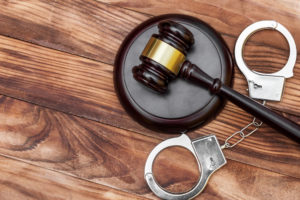
In Texas, if you violate your probation, you will likely go back to jail for the maximum potential sentence affiliated with your crime. This is especially true if you get arrested while on probation.
A probation violation strips you of your legal rights, making a challenge even more difficult. However, you do not lose your legal right to have a lawyer and to make a case for your defense. Call a probation violation lawyer in Grand Prairie today for help at 214-696-9253.
Violating Probation Takes Away Some of Your Legal Rights
Violating probation removes several of your legal rights, including the right to a trial by jury and the standard of reasonable doubt.
Instead, a judge will hear your probation violation case. And, rather than the normal standard of reasonable doubt, the judge can revoke your probation based on only a preponderance of the evidence.
You do still have the right to legal counsel and the right to present evidence in your own defense.
Because you do lose key legal rights in a probation violation action — whether you actually did violate the terms of your agreement — it is critical that you take full advantage to the rights you do retain.
Having a probation violation lawyer to represent you will ensure the protection of those remaining rights.
What Happens When You Violate Probation in Grand Prairie?
The court bases the penalties for violating probation in Grand Prairie on the type of probation you received at the time of your original sentencing.
The original probation agreement issued by the court contained specific requirements, conditions, programs, and penalties you agreed to in exchange for staying out of jail (or getting out early).
The laws that address probation in Grand Prairie allow for two different probation structures: deferred adjudication and suspended sentence.
Deferred Adjudication
A deferred adjudication agreement takes the place of a conviction for a given offense, and allows you to avoid a trial. Under this type of probation agreement, the prosecutor will dismiss your charges once you complete the requirements of your agreement.
If you do not complete your obligations, or if you violate any of its provisions, the court will hold a violation hearing. At the violation hearing — unless you can present persuasive evidence for your case — the judge will declare you guilty. In most cases, the judge will sentence you to the maximum penalties (fines and jail time) allowable under the statutes.
Suspended Sentence
The court issues this type of probation, sometimes called straight probation, when you accept a plea bargain, or the court finds you guilty for your crime. Under straight probation, the court lets you avoid jail in exchange for meeting the conditions of your probation agreement.
Upon violation of a suspended sentence agreement, the prosecutor will file a motion that revokes your suspended sentence agreement, pending a probation violation hearing. After the hearing, if you do not present sufficient evidence on your behalf, the court will order you back to jail for the unserved portion of your sentence.
If you get a probation violation lawyer involved, however, we may be able to convince the court not to revoke your probation or file a motion to adjudicate. Instead, we many convince the prosecutor to renegotiate the terms of your probation, ideally keeping you out of jail.
You may have to stay on probation longer or meet additional requirements; however, if you can retain your freedom, the result will likely pose an acceptable compromise for you.
We may convince the judge to allow your probation agreement to continue on as it currently stands, or with modified terms or additional requirements. Or it may benefit you to offer a proactive solution such as going to rehab or another type of treatment.
How Do You Violate Your Probation in Grand Prairie?
It is often quite easy to violate probation. These violations typically involve either testing positive for drugs or alcohol, getting arrested or caught associating with a criminal element, failing to appear for an appointment with your probation officer (PO), or leaving the state without permission from your PO.
Other common violations include failure to perform your assigned community service, failure to retain gainful employment, failure to report for counseling, and failure to report for drug or alcohol testing.
Talk to a Probation Violation Lawyer Today at No Cost
If your violation involved getting arrested on another charge, the court may refuse to allow you to bond out of custody based on your probation violation.
Your lawyer will have to work quickly and aggressively to build a strong case for your probation violation defense.
With more than 30 years’ experience as a felony prosecutor, district court judge, and probation violation lawyer, Attorney Randall Isenberg has the insight and experience you want working on your behalf. Attorney Isenberg will protect your legal rights and work tirelessly to build a strong case on your behalf, to help ensure the best possible outcome.
Contact the Law Offices of Randall B. Isenberg today at 214-696-9253 for help with your probation violation in Grand Prairie.










